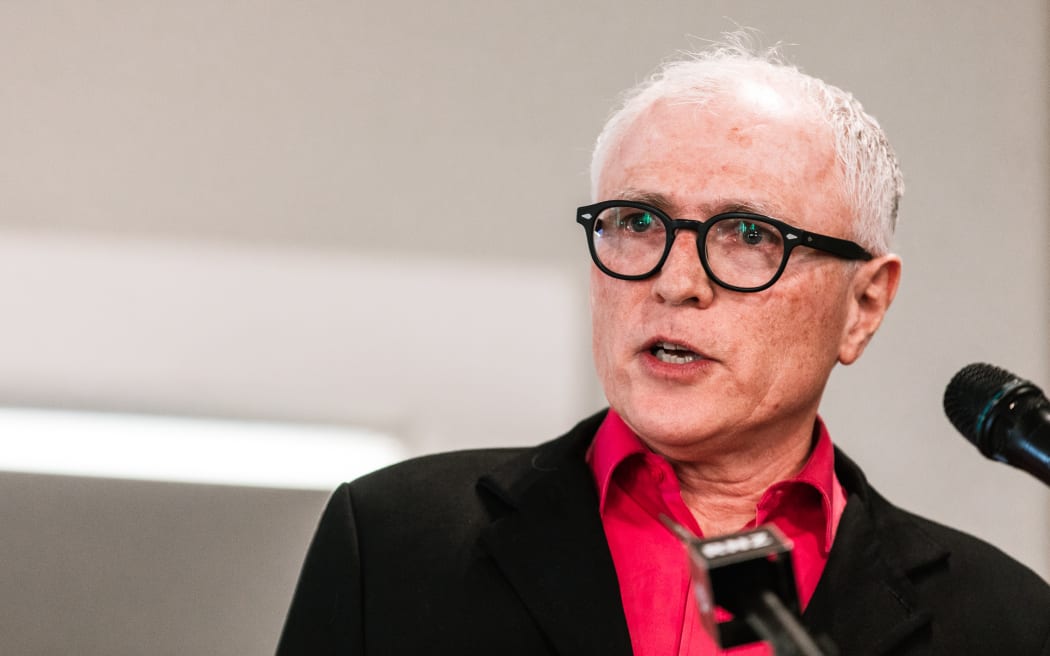
Professor Michael Baker says hospitalisation rates are reaching the same level they were between the first and second wave of Covid-19 strains. Photo: RNZ / Samuel Rillstone
The seven-day rolling average of Covid-19 cases has risen more than 60 percent since September, while hospitalisation and death rates are increasing with a third wave underway.
Long gaps between boosters and past infections, along with new strains of the virus circulating overseas are impacting the population's immunity.
It is prompting calls for mask mandates to return and boosters to be rolled out faster.
In the past week there has been 20,802 new cases of Covid-19, 15 percent of those are re-infections.
There are 322 people in hospital and a further eight in ICU, while 13 people have died from the virus in the last week.
Epidemiologist Michael Baker said hospitalisation rates were reaching the same level they were between the first and second wave.
It was an ongoing, important threat to New Zealand, he said.
"Every case in hospital is occupying a bed that we'd rather have available for elective surgery and other conditions, this infection by the end of the year is going to be responsible for 2500 deaths in total, pushing it into being amongst the leading cause of death in New Zealand this year."
While Omicron is still the dominant strain, variants like XBB and BQ.1 are rising overseas, evading the population's existing immunity.
Baker said we should be looking to Australia, where masks were still required on public transport and domestic flights.
With recorded case numbers likely not a true representation, he is suggesting a grading system, with a scale of one-to-five, so people can evaluate their risk during the summer period.
"If the level of risk rises then we do have to have some graded response. We have to do more and not just say nothing's changed. I think we do need a simple system that everyone agrees on... this is not a political football, this is something that is about saving lives in New Zealand."
The latest update from the Ministry of Health shows 73 percent of people over 18 have had their first booster and 41 percent of people over 50 and eligible for their second have had it.
For many it has been a long time since their last vax.
A woman spoken to by RNZ struggled to remember when her most recent vaccination was.
"Start of this year, I would say February, I think it was maybe something like that. To keep my dad safe mainly, as he's immuno-compromised, so [I'd] definitely take another one if they rolled another one out."
That is something immunologist Anna Brooks wanted to see happen, with boosters made available earlier for those that do not qualify yet.
"Essentially, anyone who wants to be boosted should really have access to do so, especially if you've only had one booster, if your last booster was so long ago, because it does enhance your protection at least in the immediate term."
Vaccinologist Helen Petousis-Harris said it would help in the short term.
Other countries have started to roll out a Bivalent vaccine which includes two strains of the virus the original Delta and Omicron which is now dominating.
Petousis-Harris said changing to a Bivalent vaccine would be beneficial.
"There seems to be some benefit completely when you measure peoples immune response to the vaccine that have got the two different variants, there's not so much data on how much extra protection that provides against severe disease in younger people, but when they come there might be an advantage to it."
With re-infection rates set to rise, experts are urging people not to get complacent to avoid long-term health complications.


